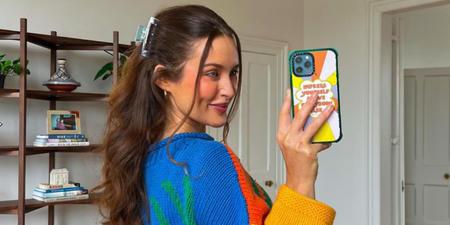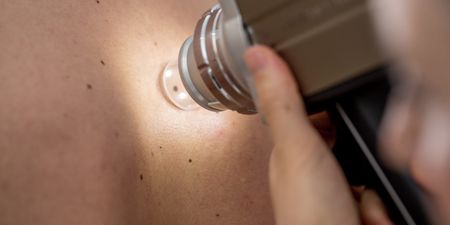To have epilepsy is to have a tendency to have recurring seizures. Anyone can have a seizure, if the brain is exposed to a strong enough stimulus. We know that about 1 in every 20 people will have a single seizure at some time during their lives.
According to Epilepsy Ireland it is estimated that there are between 30,000 and 40,000 people living with epilepsy in Ireland.
Today marks the first International Epilepsy Day. Here, reader Michelle shares her experience of living with the condition, how it affects her daily life, and what she wishes the public would know about when she has a seizure…
_____________________________________________________________________________________
How were you diagnosed with epilepsy?
I was diagnosed with epilepsy when I was eight years old. To be honest I wasn’t scared then thinking back on that time. I guess what you don’t know can’t hurt you.
At eight years of age you don’t tend to be afraid of a whole lot of things you don’t understand plus no one judged me at age eight. It’s only now that I realise that I was braver when it came to my epilepsy at eight than at 33 – children are so resilient!
What symptoms did you spot?
The seizures would start with what my sister Orla would say “Michelle your legs are flying again”. My body would lose control and shake all over. It would last only seconds and my parents didn’t witness these initially.
It didn’t hurt and I never lost consciousness so I didn’t really understand what was happening. I started to have seizures in my sleep at this time and that’s when my parents witnessed them as I would on occasion shout and I was shortly diagnosed with nocturnal epilepsy as they were almost always in my sleep.
During the first seizures I had while I was awake I would get this strange sensation through my body starting at my feet up to my head which I later discovered is called an aura.
This would then progress to falling forward and the jerking of my arms and legs. The type of seizures I have are complex partial seizures. There are several types of epilepsy and seizures and that’s what makes the condition difficult no two people are the same.
How did you deal with this?
For over 20 years I thankfully only had nocturnal seizures so I thought, “I can do this, I can go about everyday as normal, go to school, college, work and even drive and no one will know.”
That’s exactly where I went wrong. I didn’t deal with it. I just categorised it in a box and thought I don’t really want to look into that box or tell anyone what’s in there.
I became more afraid of my condition towards my late 20’s as I had a neurologist appointment and my neurologist suggested we try new medication which may be better so I went along with the plan and adjusted my medication as planned and BANG I had a seizure when awake and I genuinely was scared to death!
As I was now older I understood what it was like to be judged and to be different to everyone else and I didn’t want that. Immediately I begged my doctor to put me back on my old meds and things returned to my normal nocturnal seizures only. This wasn’t right I know, but in my head it was, it was perfectly fine. I couldn’t face it and it’s only in the last year I can truly admit this.
How did it affect your life when you were younger?
I had quite a normal teenage life except I didn’t drink which was difficult to explain to people at the time, but I was terrified to drink as it is really bad to mix alcohol with your medication and also after drinking you are more susceptible to seizures.
I went to college, got my driving license, got a car and did all the normal things in life and was so thankful so this. Very few people knew I had epilepsy.
I met my husband while in college we actually broke up after some time together and it was because of my epilepsy. I would make excuses not to stay over at his place because I didn’t want him to potentially see me having a seizure.
So I broke up with him rather than face up to this big elephant in my life. Eventually I did tell him and we are now happily married and he is very understanding and got me to where I am today with finally facing epilepsy and not letting it define me or be that box that I couldn’t open.
In 2013 we made the decision that I needed to face my fears so I went to see my neurologist who knew I avoided him and we discussed what medication I was on and what I really needed to do, to be on a medication regime that was right for me and not one that was just getting me by.
I left Beaumont hospital with a new medication plan and a very heavy heart as deep down I knew I was facing a difficult time.
How did this move change your day-to-day life?
Initially the medication change was going well until 2014 when I had my first day seizure in a very long time and then faced almost daily seizures and some days multiple seizures.
That was a very difficult year but one in which I can say I faced my biggest fear and battled epilepsy head on.
I was admitted to Beaumont’s Epilepsy Monitoring Unit and spent just over a week there being monitored 24/7.
I was terrified, I existed in a world of complete fear.
It is trial and error with medication and not everyone is lucky enough to have success and be seizure free even when on medication.
April to November 2014 was a long road in trying various medications. The first medication I tried worked but not effectively while the next made everything much worse.
On my third new medication in November I finally was able to say “I had no seizure today!” and that extended to this week and eventually 9 weeks and almost 10 weeks.
I didn’t reach 10 weeks and trust me I wish I could say I wasn’t gutted and didn’t cry when I had a seizure in the middle of a wet carpark on a day out but I did. However on that car journey home I came to the realisation “I have epilepsy and I will have seizures so get up and start again!”
That was only one week ago and that’s what I’m doing now.
I let epilepsy be that box I didn’t want to open for so long and now it’s wide open and I am now dealing with it. It’s not easy and there are very difficult days and days when I feel I could conquer the world.
I wish I had an inspirational story on how I achieved so much while having epilepsy and it changed me for the better but as I say that, I realise I have in many respects. I had a happy childhood with fabulous memories, I graduated, I met and married a super guy, I have travelled.
My only downfall was letting the fear of epilepsy and the fear of the not being in control take over.
What advice and support has been available to you from your time of diagnosis? How do your family and friends cope with your epilepsy?
I really had a whole new diagnosis last year which was Left Frontal Lobe Epilepsy and the support from the neurological team and epilepsy nurses in Beaumont was fantastic. The nurse is always at the end of the phone and my neurologist Dr Delanty has been great.
Epilepsy Ireland have an on call nurse and a support network also, Margaret in their Midlands branch was a huge support to me emotionally and guiding me how to understand the condition and explaining how to set goals for myself which was fantastic in gaining some normality back in my life.
My family and my husband continue to be my main support, they had to get their heads around it as its just as difficult on them watching someone they love go through a new diagnosis and accepting this is now a part of life. My dog Belle certainly kept a smile on my face always wagging her tail and offering unconditional love!
I find friends don’t always understand the emotional impact epilepsy can have on a person and you certainly discover who is really there for you during difficult times.
What are your biggest daily challenges of dealing with your epilepsy?
Definitely the fear of the unknown and not knowing when the next possible seizure will happen. The fear of people potentially see me having one and how people would react if I had one as its generally complete panic.
I’m not quite there yet with going places on my own, I am much more comfortable when I go shopping with someone or even for a walk rather than being alone.
Has your condition held you back in anything you’ve wanted to do?
Yes and no. It stopped my life whilst in the middle of my new diagnosis last year but that was me and not the epilepsy, it was the way I reacted to the diagnosis.
It has held me back in a work capacity, when you have a job that demands a lot and is stressful you initially have no option other than to walk away. It’s a condition that can really affect you mentally as it’s a big deal to get your head around.
What advice would you give to someone who has been recently diagnosed?
Breathe…
Do not let the fear take over and you’re family are your greatest tower of strength during a difficult time so keep them close and don’t lock yourself away.
Speak to someone and tell them exactly how you feel even if you think it makes no sense – it’s good to talk. Finding the correct medication to suit you can take time and patience.
What’s the one thing you wish people knew about living a life dealing with epilepsy?
I would like people to take a second and think what it must be like to not be in control all of the time or not knowing. It sounds strange as no one knows what’s going to happen to them in five minutes or indeed next week. However when you live with a condition that you know could decide to strike at any second that’s scary.
I would love if people were educated on epilepsy – everyone from school kids to employers, and how it can effect a person.
Teaching people how to react if a person has a seizure is important – don’t walk away or panic. If people could be educated with the simple ‘TEAM’ analogy it would be brilliant.
Take care to protect the person.
Ensure you stay with the person.
Allow the seizure to run its course.
Move the person onto their side when the seizure is over.
















































